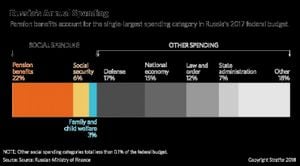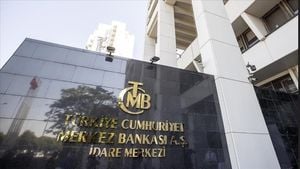OTTAWA – Quebec’s controversial secularism law, known as Bill 21, is slated for discussion before the Supreme Court of Canada, stirring responses from various stakeholders. The Supreme Court announced on Thursday its decision to hear the case of English Montreal School Board (EMSB), et al. v. Attorney General of Quebec, et al. concerning the law enacted by Quebec's National Assembly in 2019.
Bill 21 forbids certain public sector employees, including judges, police officers, teachers, and prison guards, from wearing religious symbols during their professional duties and mandates they perform their roles with their faces uncovered. The Quebec government, led by Attorney General Simon Jolin-Barrette, has pledged to vigorously defend the law, stating it reflects the distinct values and historical framework of Quebec. Jolin-Barrette declared, “We will fight to the end to defend the Act respecting the laicity of the State.”
The announcement follows multiple requests for leave to appeal against the law, with 25 interveners listed, leading to heightened political and social discourse surrounding the matter. Equipped with the notwithstanding clause, which allows the Quebec government to protect the law from judicial review, the system is renewed every five years; it was last renewed last year. Advocates for Bill 21 maintain public support, with one recent study indicating 51% of Quebec residents believe the law adequately enforces state neutrality.
Opposition remains vocal among various groups. The EMSB has been adamant about the necessity of challenging what it describes as legislation conflicting with fundamental rights and freedoms. “This legislation runs contrary to what we teach with respect to individual rights and religious freedoms,” stated EMSB Chair Joe Ortona. He expressed hopes the Supreme Court will align with their view and recognize the law's misalignment with societal values.
The Supreme Court’s hearing marks not only legal significance but also touches on broader issues of identity and autonomy within Quebec, which many argue necessitates self-determination over its own legislation. Notebook and legal expert analysis predict the case will have far-reaching effects on the interpretation of the Canadian Charter of Rights and Freedoms.
This challenge, which has already seen varied decisions from lower courts, underwent scrutiny at both the Quebec Superior Court and the Quebec Court of Appeal. While the Superior Court previously sided with the EMSB, ruling the law infringed on minority language educational rights, the Quebec Court of Appeal later overturned this decision. This legal rollercoaster only emphasizes the contentious nature of the law.
Jolin-Barrette's colleagues have vocalized concerns over the federal government's intention to intervene. They argue this constitutes disrespect for Quebec's autonomy, with Jolin-Barrette stating, “An intervention of the federal government at the Supreme Court would not only show a lack of respect but also could be considered anything other than an attack on provincial autonomy.” The Quebec government asserts the importance of the law as part of their identity and societal norms.
Opposition parties even echo this sentiment, as Bloc Québécois Leader Yves-François Blanchet condemned the federal government’s financial backing of the legal challenge, labeling it unacceptable. He remarked, “It is fundamentally unacceptable for Ottawa to challenge the legitimacy of Quebecers’ choices.”
Conversely, the Canadian Civil Liberties Association has expressed support for the Supreme Court's decision to hear the challenge, arguing Bill 21 infringes upon constitutional rights. Bouchera Chelbi, one of the plaintiffs and a teacher who wears a hijab, noted the decision to hear the appeal brings hope for those adversely affected by the law. “This only proves the importance of debating Bill 21, not just for religious minorities but for everyone,” she remarked.
Justice Mahmud Jamal, who previously recused himself from the case due to potential bias resulting from his past leadership at the Canadian Civil Liberties Association, will not participate, reflecting the court's commitment to maintaining impartiality amid this partisan legal battle.
The Supreme Court is yet to provide insight on the timeline for hearings. Still, both sides expect prolonged legal wrangling over the law, which has already faced considerable opposition since its inception. Observers predict the outcome could lead to significant changes, affecting the future of rights and freedoms across Canada and setting potential precedents for similar cases of minority rights and religious freedoms.
Canada’s involvement showcases the duality of values between public secularism and individual rights; the ramifications of this case extend far beyond Quebec's borders. It highlights not just legal dilemmas but also the fundamental philosophical clash over the values of inclusivity versus secularism, which are continuously redefining the Canadian identity.
With the Supreme Court deciding to accept the appeal, all eyes will be on their ruling, indicating the strength of Quebec's legislative autonomy against the backdrop of national standards. The interplay of provincial rights versus federal oversight may very well shape the socio-political fabric of Canada moving forward.



